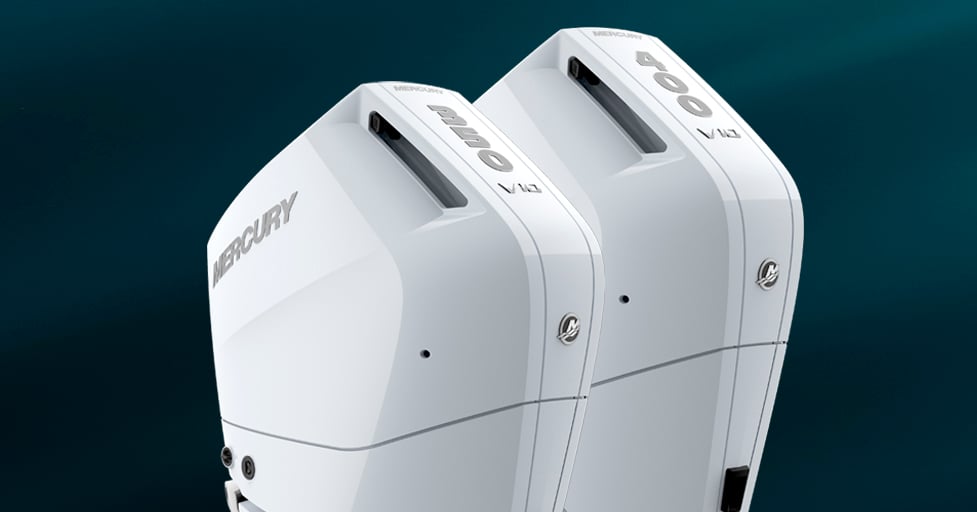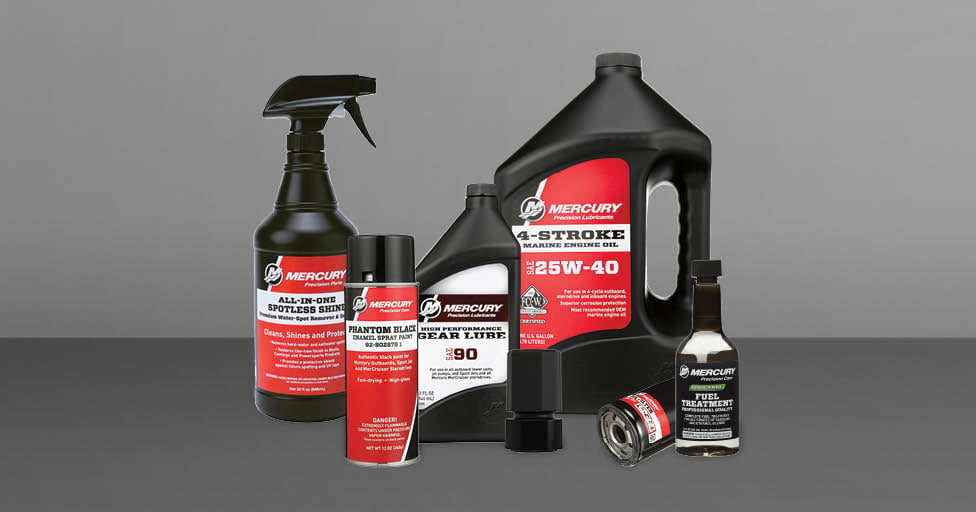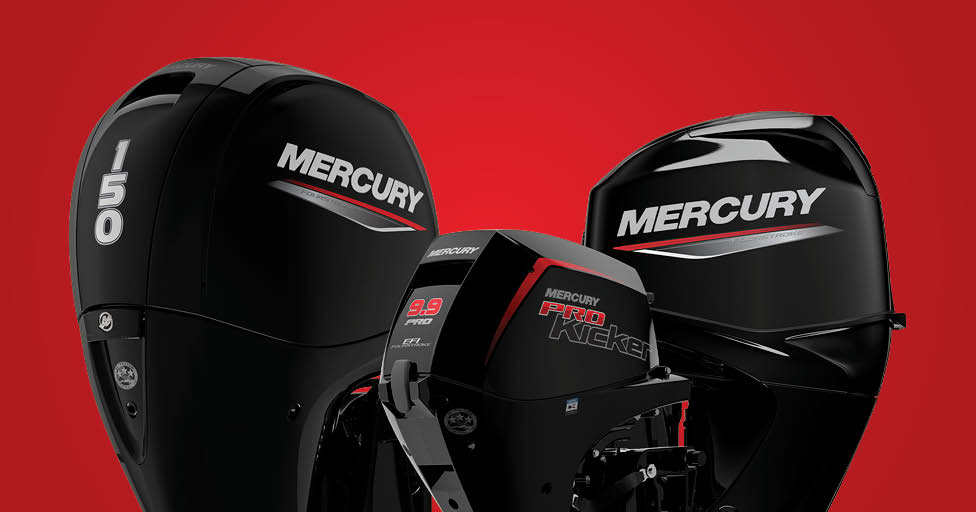Mercury Marine continue d'élever les performances des moteurs hors-bord électriques avec les modèles Avator™ 75e et 110e. Présentés pour la première fois au CES 2024 et devant être commercialisés dans le courant de l'année, ce sont nos moteurs hors-bord électriques les plus puissants à ce jour, offrant aux plaisanciers la possibilité de propulser des bateaux de pêche en aluminium, des pontons compacts et même de petits runabouts en fibre de verre grâce à un système efficace et entièrement électrique.

Mercury dévoile les moteurs hors-bord électriques Avator™ 75e et 110e

L’évolution des performances premium
Découvrez les premiers moteurs hors-bord V10 au monde. Offrant une puissance et une fiabilité légendaires, avec un raffinement et un contrôle haut de gamme, les tout nouveaux moteurs Verado 350 et 400 ch offrent des capacités extraordinaires pour vous permettre d’explorer en toute confiance au-delà de l’horizon..

Bienvenue dans la famille!
Vous avez maintenant encore plus de façons de personnaliser vos performances dans notre gamme de moteurs hors-bord intermédiaires. Découvrez les nouveaux moteurs hors-bord FourStroke 150hp en Blanc Fusion Chaud et Blanc Fusion Froid, ainsi qu’un tout nouveau moteur hors-bord Jet de 105hp.
Conseils et astuces pour les plaisanciers débutants.
Chez Mercury, nous pensons que tout le monde devrait pouvoir expérimenter la joie et la liberté que procure le fait d'être sur l'eau. Notre série sur les bases du nautisme offre des conseils d'experts pour vous aider à entamer votre voyage en bateau en toute confiance. Pour que vous puissiez vous lancer avec audace dans chaque aventure qui se présente à vous.
SmartCraft® Le pouvoir de faire plus
Les technologies numériques Mercury SmartCraft® affinent l’ensemble de l’expérience de navigation pour faire en sorte que chaque jour sur l’eau atteigne son plein potentiel. Des instruments et affichages intelligents aux systèmes avancés qui facilitent le contrôle du bateau, SmartCraft vous permet de tirer le meilleur parti du temps que vous passez sur l’eau.

Votre bateau est-il prêt pour la basse saison ?
Avec de nouvelles aventures nautiques à l'horizon, votre revendeur agréé Mercury dispose des pièces d'origine et du service d'experts dont vous avez besoin pour ne pas rester sur le quai lorsque l'eau vous rappelle. Planifiez votre entretien maintenant.

Repower
Your boat still has a lot of memories left to make. Give it the power it needs to continue propelling you on your adventures with a new Mercury outboard.
Données de performances
Les moteurs Mercury sont conçus et testés pour offrir les performances les plus élevées et l'expérience de navigation la plus agréable possible. Les bulletins Boat House fournissent des informations détaillées sur les performances des moteurs Mercury sur une large gamme de types et de marques de bateaux, provenant directement d'une source en laquelle vous pouvez avoir confiance : Mercury Marine.
Remotorisation avec Mercury
Votre bateau a encore bien des souvenirs à fabriquer. Donnez-lui la puissance dont il a besoin pour continuer à vous accompagner dans vos aventures avec un nouveau moteur hors-bord Mercury.
Rapport de durabilité
En atteignant nos objectifs actuels en matière de développement durable et en planifiant d'autres réalisations à l'avenir, nous continuerons à montrer la voie en nous engageant auprès de nos partenaires et des communautés dans lesquelles nous exerçons nos activités. Avec des objectifs ambitieux à atteindre en 2025 et 2030, Mercury continue d'aller de l'avant en s'engageant à réaliser sa vision du développement durable et à montrer l'exemple.